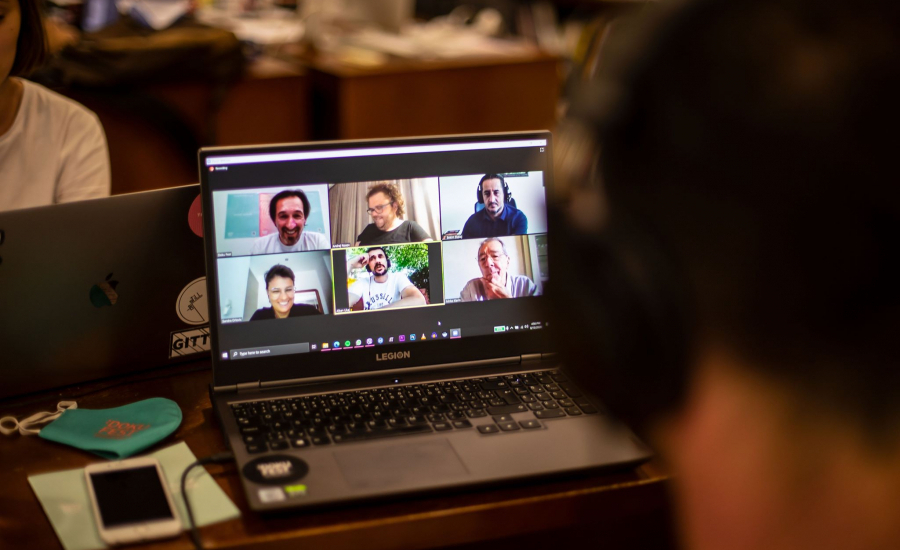14/08/2020
In close collaboration with Humanitarian Law Center Kosovo and the Foreign Affairs department of the Swiss Embassy, August 13th’s DokuTalk event was organized as part of the “Dealing With the Past” debate which has been regularly hosted by DokuFest for several years now.
The panel discussion brought together Andrej Nosov, political activist and founder of the Youth Initiative for Human Rights, who also moderated the debate; Sandra Orlovic, awarded “Young European of the Year” for her work within the HLC in Belgrade and activism in the field of human rights; Mirko Klarin, professional journalist since ‘66 with extensive experience on daily and weekly newspapers in former Yugoslavia, today the founder and editor-in-chief of SENSE News Agency; Alban Ukaj, artist engaged in various theater plays and films, as an actor, director, and screenwriter. During the discussion, the speakers shared and exchanged knowledge and experiences regarding the artistic and journalistic approach to facts and truth, rewriting history, and the ties connecting the past to the present and the future.
Even twenty-thirty years after the conflict that led to the breakup of the Yugoslavian state, while non-governmental organizations and other private entities have been and are extensively implied in the work for representing the rightful truth, there continues to exist an undeniable and ongoing urgency for the clarification of a sole narrative. The main challenge being the particularity of accurate information vis-à-vis the violence in the past, the panel of human rights experts, media professionals, and artists acknowledges that the society cannot be changed by understanding the facts. Even though the artistic approaches are an alternative way to contribute to the collective consciousness, the only priority shall be given to justice and its place. The artist Alban Ukja underlines how sometimes, there is not even the time to change society, because sometimes all that matters is “how many shining eyes you have in front of you”. However, cooperation and dialogue between the ex-Yugoslavian states are accepted as essential by all the panelists.
Regarding the obstacles that are yet to be fought in the future, Mirko Klarin clearly states that there is a need for the critical mass to change in order to provide the answers for the future generation. To Sandra Orlovic’s experience, the fight is still worth fighting, even though it may not be very obvious. For the fight to succeed, Orlovic put the emphasis on making the fight visible, as opposed to the artificially produced narrative that has oversaturated mainstream media nowadays.
To everyone’s remarks, the younger generation’s approach to ideology and history is seen as mature and flexible, as long as it has been exposed to facts and credible narratives. The curiosity of the youngsters, not enough nourished by the educational system and/or family discussion, is evaluated as positive by all the speakers, however, everyone draws attention to the lack of critical thinking and sources. Combined, these conditions can be very unfit for the future, thus making every artistic production necessary as a way to communicate and close the gap between the generations in terms of memory and preserving them.
By Enxhi Noni


